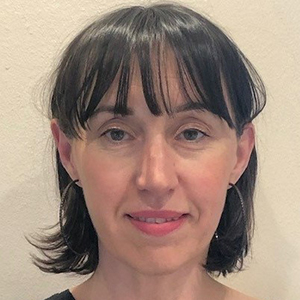How smaller publishers are adapting and responding to the open access landscape

Small presses offer unique perspectives and wide viewpoints, and should be valued, supported and encouraged.

UKRI’s open access (OA) policy now includes monographs, book chapters and edited collections, ensuring that a broader range of research findings funded with public money can be accessed and used by anyone. Under the policy, findings should be made OA within 12 months of publication (or immediately if authors wish to apply to the dedicated fund to support OA publication costs).
Many smaller presses, however, are new to OA, with little experience of developing OA charging models for long form publications. With this comes apprehension, fear of not being able to remain competitive, and fear of losing revenue.
But smaller publishers also have distinct advantages due to their size. Being smaller, they can adapt more quickly to challenges and develop close relationships with their contributors and authors. This can lead to more frequent and informative communication, enabling a closer relationship with specific subject communities.
Securing diversity and financial futures
Smaller presses, with their greater agility, can also more quickly pick up and utilise new solutions and initiatives such as the Open Book Collective (OBC) (available via Jisc's licence subscriptions manager). The OBC is a collective of small OA publishers and infrastructure providers. Once a press has met the membership criteria and been approved to join by OBC’s membership committee, they can benefit from the collaboration, support, visibility and revenue streams the collective brings. This ease of uptake enables collaboration and better positions smaller presses to innovate.
By bringing together publishers, publishing service providers and scholarly libraries, OBC helps to secure the diversity and financial futures of OA book production and dissemination. The platform enables a range of potential funders to understand what different open access book publishers and open publishing service providers do, and to learn more about their missions and values, content and services, business models and ongoing projects.
Views from the sector
The White Horse Press, an independent academic publisher specialising in environmental humanities and social science, said:
“The OBC has given a real boost to our OA book publishing. It has allowed us to partner with libraries in a super-efficient way which is already accelerating our book frontlist OA transition. After only a year, OBC has enabled us to publish one book OA when it would otherwise have been gated, with another on the way soon – that’s 40% of our annual frontlist!
"The challenge for us in seeking this kind of support directly from individual libraries is our lack of capacity, at small scale, to do targeted outreach. OBC dissolves this constraint through clever technical infrastructure, and lets us join forces with other small presses that are also doing good work. We are very enthusiastic about innovations such as this one, that let us realise some of the advantages of scale while remaining the tiny niche micro-press we want to be.”
Joe Deville, OBC managing director and senior lecturer, Lancaster University, said:
“The OBC has only been engaging actively with libraries for just over a year. However, in that short period we have already achieved commitments from libraries worth over £350,000. Around 90% of this revenue goes either direct to our OA publishers and publishing service providers, or is used to build capacity via our recently launched grant-giving Collective Development Fund. This has come from over 60 different libraries, based in over a dozen countries so far.
"However, this is just the start. To really secure a fairer, more bibliodiverse future for OA book publishing, we need to continue to build this support in line with our approach of ‘scaling small’, as we put it."
Unique perspectives
Small presses are crucial to bibliodiversity and the future of the academic publishing sector. The OBC has been helping these small publishers achieve their goals of reaching a wider potential pool of supporters, encouraging collaboration and enabling them to have more financial freedom by providing clear options.
Jisc continues to liaise with publishers and libraries to ensure publishing costs are reduced and constrained, prioritising the transition from old-style paywalls to open research as quickly as possible. This supports UKRI’s aim to foster equitable participation in scholarship and cultural diversity and inclusivity in academic book publishing.
Small presses offer unique perspectives and wide viewpoints and should be valued, supported and encouraged via schemes to boost community and collaboration.
About the author

I lead and co-ordinate the communications, marketing and engagement activity associated with the delivery of the Jisc/UK Research and Innovation’s open access policy programme, a two-year body of work to implement UKRI's new open access policy.
I devise, develop and deliver communication and engagement plans, campaigns and assets that will inform and engage research-performing institutions, libraries, publishers, research offices and researchers so the programme’s work packages can be successfully delivered.